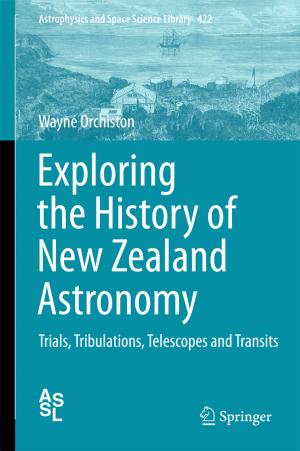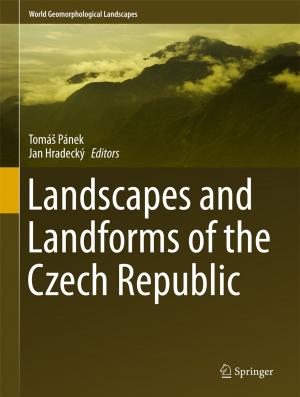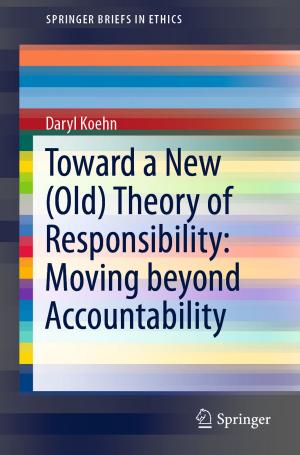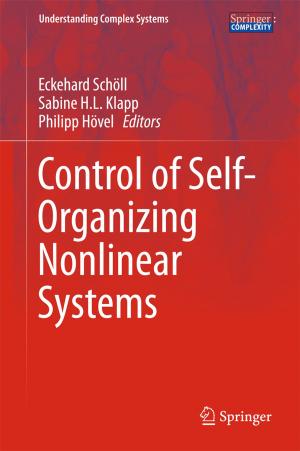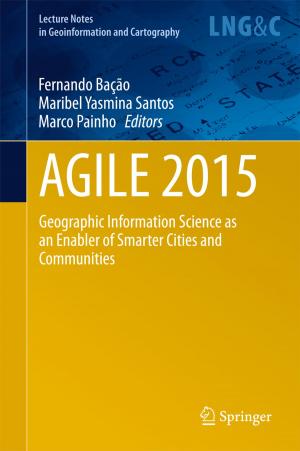Arctic Summer College Yearbook
An Interdisciplinary Look into Arctic Sustainable Development
Nonfiction, Science & Nature, Science, Biological Sciences, Environmental Science, Earth Sciences, Nature| Author: | ISBN: | 9783319664590 | |
| Publisher: | Springer International Publishing | Publication: | October 13, 2017 |
| Imprint: | Springer | Language: | English |
| Author: | |
| ISBN: | 9783319664590 |
| Publisher: | Springer International Publishing |
| Publication: | October 13, 2017 |
| Imprint: | Springer |
| Language: | English |
This book highlights both the diversity of perspectives and approaches to Arctic research and the inherent interdisciplinary nature of studying and understanding this incomparable region. The chapters are divided into four liberally-defined sections to provide space for dynamic interpretation and dialogue in search of sustainable solutions to the issues facing the Arctic. From governance to technology, scientific research to social systems, human health to economic development, the authors discuss fundamental questions while looking toward the Arctic’s future. Whether the reader is well-versed in the history and complexity of Arctic policy or looking for an insightful introduction to the vast world of Arctic research, everyone will find answers that lead to new questions and even more discoveries in these pages, laying the foundation for tomorrow’s discussion on the future of the Arctic.
The Arctic’s unique geographic and political characteristics pose questions for the international community, indigenous peoples, and economic interests not easily answered through traditional concepts. To that end, the Arctic Summer College has been engaging leading professionals, students, scholars, and policy makers from across the globe to exchange ideas and support further investigation into the Arctic. A joint venture between Ecologic Institute US and Ecologic Institute Berlin (Germany), the College participates at the annual Arctic Circle Assembly in Reykjavik, Iceland, and continues to be at the forefront of international collaboration in this critical area of economic, political, environmental, and humanitarian development.
This book highlights both the diversity of perspectives and approaches to Arctic research and the inherent interdisciplinary nature of studying and understanding this incomparable region. The chapters are divided into four liberally-defined sections to provide space for dynamic interpretation and dialogue in search of sustainable solutions to the issues facing the Arctic. From governance to technology, scientific research to social systems, human health to economic development, the authors discuss fundamental questions while looking toward the Arctic’s future. Whether the reader is well-versed in the history and complexity of Arctic policy or looking for an insightful introduction to the vast world of Arctic research, everyone will find answers that lead to new questions and even more discoveries in these pages, laying the foundation for tomorrow’s discussion on the future of the Arctic.
The Arctic’s unique geographic and political characteristics pose questions for the international community, indigenous peoples, and economic interests not easily answered through traditional concepts. To that end, the Arctic Summer College has been engaging leading professionals, students, scholars, and policy makers from across the globe to exchange ideas and support further investigation into the Arctic. A joint venture between Ecologic Institute US and Ecologic Institute Berlin (Germany), the College participates at the annual Arctic Circle Assembly in Reykjavik, Iceland, and continues to be at the forefront of international collaboration in this critical area of economic, political, environmental, and humanitarian development.

